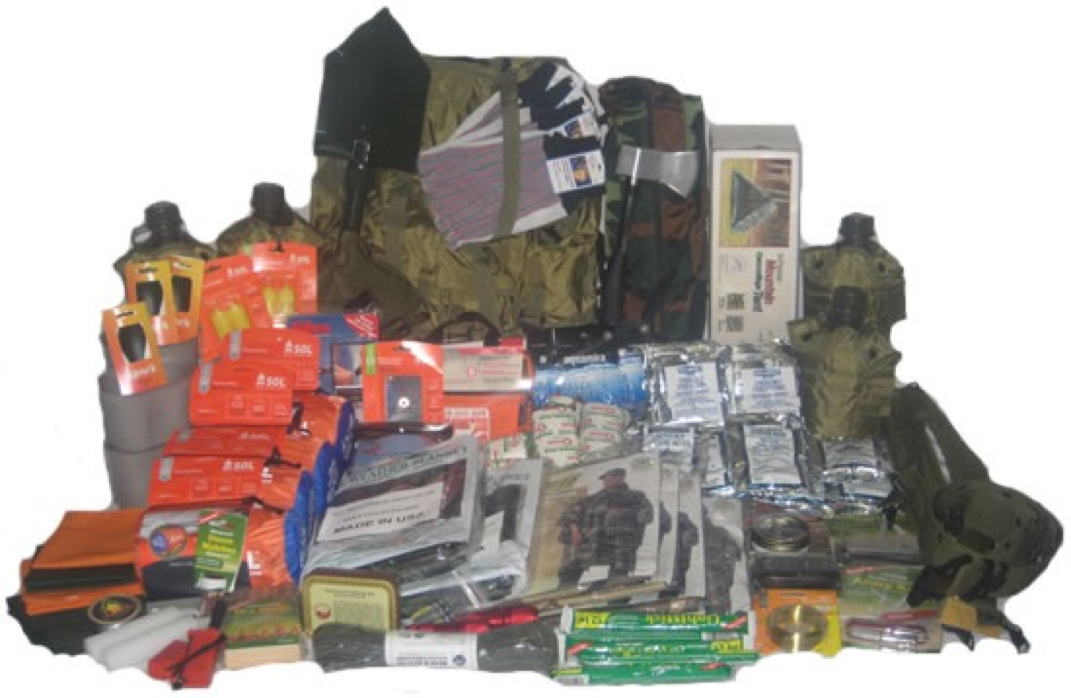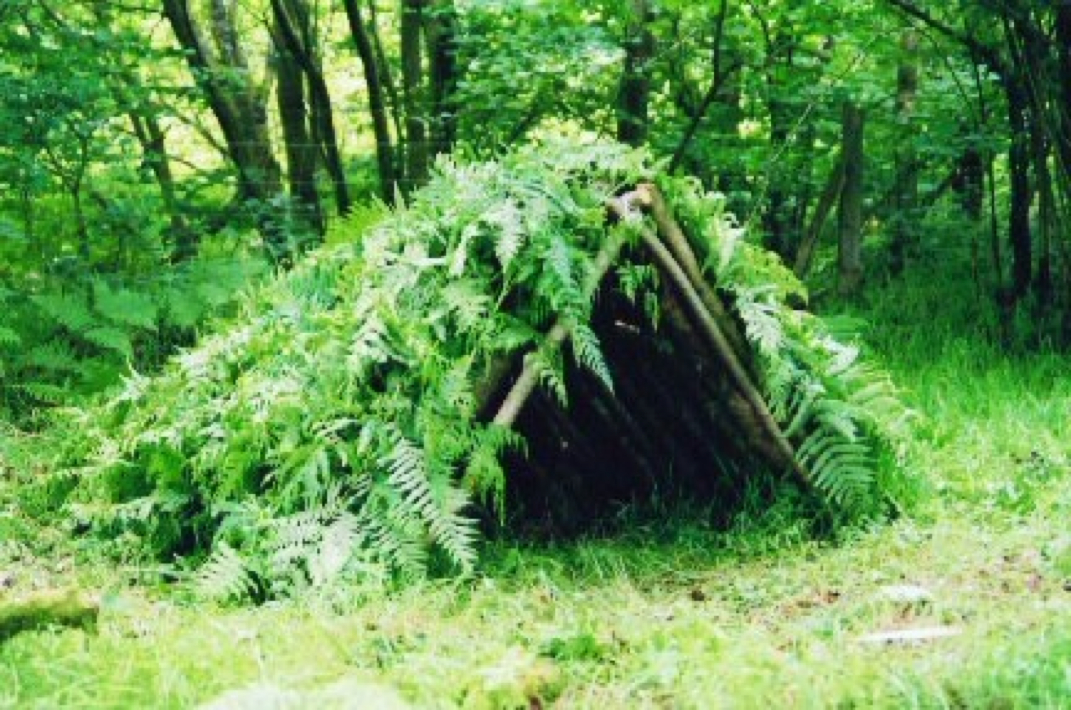SURVIVAL PREPARATION & PLANNING3/8/2012 Daniel W. Shrigley |
This article is endorsed by Daniel W. Shrigley. I found this posted on another site. I polished it up a bit, the message is straight and to the point. Enjoy! PREPPERATION & PLANNING = SURVIVAL ----------------------------------------------- Survival Training: • You’ve got your guns. • Your pantry is stocked full of food. • You’ve got so much gear, your bags are ready to explode. But are you really prepared to survive? Have you run through simulated scenarios? Have you tested your plans and looked for weak points? Do you know how to use every piece of gear in your bag and have you actually tested it? Gear is great, but when it comes to survival nothing can replace knowledge, and good old fashion practice. To be truly prepared, you need to start practicing your skills in a real world setting. Here are a couple ideas to get you started: Start hiking and backpacking. This will not only help you stay fit, which is an extremely important aspect of survival, but it will also prepare you both mentally and physically in case you have to bug out. Build a fire pit in your backyard. Building a fire pit in your backyard can help you in a number of ways. It’s a great spot to practice fire starting techniques. It’s a great place to practice primitive cooking techniques. They’re good to have in case you’re ever without power. Shoot, Shoot & then shoot some more. Whether it’s for hunting or self defense, if you own a firearm it’s your responsibility to train and practice with that weapon. How tragic would it be if after all of your preparation you found out the hard way that you don’t know how to use your gun? Think I’m being a little over dramatic? Think again! Every year thousands of gun owners are killed by a criminal because they never learned how to properly use their gun. From forgetting to take the safety off to not knowing how to shoot, there isn’t a day that goes by where you don’t hear about a tragedy that could have been prevented through training. Go hunting and fishing. Being able to provide for your family is not something that should be taken lightly. Even during the best of conditions there’s going to be times that you come up empty handed while hunting or fishing. To give yourself the best chance of survival, you need to learn how to hunt and fish. The more you practice these skills the easier it will be to find food during a survival situation.
0 Comments
SURVIVAL BASIC SKILLS3/8/2012 Daniel W. Shrigley |
This article was posted on a site and it's very straight forward. Please enjoy and practice these skills before you find the need to use them in a real situation. ------------------------------------------------- WILDERNESS SURVIVAL SKILLS Survival Techniques: 5 Basic Survival Skills Within all survival techniques, there are 5 Outdoor Basic Survival Skills that everyone who ventures into the Outdoors should understand and be fully aware of their potential need and use. This is a just brief outline, not a full explanation of all the requirements and items required in each category. One of the most important elements to survival is between your ears, your brain. DO NOT PANIC, use your wits and practice all elements of the 5 basic survival skills before you may need to rely on them. Basic Survival Skill 1: FIRE Fire can purifywater, cook food, signal rescuers, provide warmth, light and comfort, help keep predators at a distance, and can be a most welcome friend and companion. As a survival technique, it is one that is essential. Each and every person who ventures into the Outdoors should have a minimum of two ways to start a fire with them, one on their person at all times and the other with their gear. A few small fires provides more heat than one large fire. Collect firewood you think you will need for the night and then collect the same amount again, experience shows you will need it. Conserve fuel by making a “star fire”; where the ends of large logs meet in the fire only, push inward as more fuel is needed. Make a reflector from your SPACE BLANKET on the back wall of a shelter to reflect heat of your survival fire to your back, sit between fire and back shelter wall. Basic Survival Skill 2: SHELTER SHELTER is the survival technique by which you protect your body from excess exposure from the sun, cold, wind, rain or snow. Anything that takes away or adds to your overall body temperature can be your enemy. Clothing is the first line of shelter protection, have the right clothes for the right environment. Always have a hat. Try and keep the layer closest to your body dry. Layers trap air and are warmer than one thick garment. Do not expend energy making a shelter if nature provides one. Practice building a quick lean-to shelter in case you can not find your campsite, do not wait until you need to make one. Use a SPACE BLANKET to prevent dampness or to insulate your shelter or to wrap yourself up in a sitting or squat position to concentrate your body core heat. Basic Survival Skill 3: SIGNALING SIGNALING is the survival technique of having the means and ability to alert any and all potential rescuers that you are in need of HELP. Fire, flashing light, bright color markers, flags, mirrors, whistles all will help you be found. Three fires in a triangular form are a recognized distress signal. Carefully bank your signal fires to prevent igniting surrounding area. Use regular signal mirrors only when you can see a plane, or people in the distance. Use EMERGENCY STROBE light at night to help attract attention from those that may be in the area. Make smoky fire with organic material over the fire during the day to attract attention. Lay out ground to air signal in open field, S.O.S. from rocks, logs or colored clothing, whatever will be seen against the background. Most search and rescue parties use aircraft as a primary method of sighting. Basic Survival Skill 4: FOOD/WATER FOOD/WATER are vital towards your survival. Ration your sweat not your water intake. Try to drink only in the cool of the evening. You can live up to three days without water. DO NOT eat plants you do not know. Never drink urine. Always assume that you will need extra food and water when you plan your trip. Pack energy bars and candy in your pockets at all time, just in case. If possible boil all water 10 minutes plus one minute for every 1000 feet above sea level. Strain water through your handkerchief to remove large particles. Try to drink only in the cool of the evening. Never wait until you are without water to collect it. Have some poly zip bags to collect and store water. Never eat any wild berries that you are not sure of what they are. You can catch rain water in your SPACE BLANKET by laying it out in a trench. Basic Survival Skill 5: FIRST AID FIRST AID as a survival technique is not just the basic medical needs, it is the primary way in which you act to survive. DO NOT PANIC, remain calm and do what you have to do to take care of YOU. STOP means Sit, Think, Observe, and Plan. It is the most intelligent thing you can do when you realize you are lost or stranded. The most important element is to keep your brain functioning rationally, this is basic first aid for survival. Analyze your needs before every trip, create a medical checklist and carry a small personal kit with you at all times. Most survival situations require only dressing for small cuts, bruises and personal medication needs, make sure you know what you have with you and how to use it. Do not over pack, pack what you feel you will need to carry with you at all times. Concentrate on being found, pack a picture of your family in with your gear to remind you of the reasons to remain calm and to survive. Prevent hypothermia by insulating yourself in a SPACE BLANKET. First published on Get Ready Industries. Article reprinted with permission. Archives
June 2023
|
All Rights Reserved, Copyright © 2012 - 2022 Survival Extreme Catalog Inc. All Rights Reserved, Copyright © 2012 - 2022 Survival Trek Escape. All Rights Reserved, Copyright © 2012 - 2022 Survival Talk Radio.


